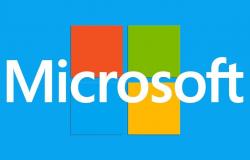Source: Pexels
Stay informed
Unsubscribe
The frenetic daily rhythms lead to eating in a short time and not enjoying the meal, with repercussions on health
- When we eat too quickly we force the body to implement a series of reactions to cope with the hasty arrival of food in the stomach
- One of the first negative consequences of eating quickly is weight gain as satiety signals are altered
- Eating food too quickly can lead to diabetes, metabolic diseases and hypertension
- Swallowing food leads to poor chewing and too large pieces arriving in the stomach
- Having multiple snacks a day helps reduce the hunger that pushes you to eat quickly during the meal
Eating too quickly poses health risks. Whether we are forced by the frenetic daily rhythms or whether it is just a habit, when we consume a meal too quickly the body has to cope with the hasty arrival of food in the stomach, with repercussions on digestion. Not only.
Weight gain
One of the first negative consequences of eating quickly is weight gain. The reason, as explained by the National Autonomous University of Mexico (UNAM), is that stomach hormones they don’t have time to send signals to the brain to warn it of the satiety and, therefore, people eat more than they should.
«When the hormones produced in the stomach and intestines are not given time to send signals to the brain (in particular to the hypothalamus, responsible for regulating nutrition), the brain does not realize that the stomach is already sufficiently expanded and satisfied. The same thing happens with the intestine. And even if your body has already satisfied its needs, you continue to eat without stopping», said Mariana Valdés Moreno, head of the Nutrition program at the Faculty of Higher Studies (FES), UNAM Zaragoza campus. Over time, hunger and satiety signals between the stomach, intestines and brain are altered. So we end up eat more.
The health risks
Chewing little and quickly could be the start of many disorders. Several UNAM studies have shown that the speed of food intake is related not only to the risk of obesitybut also to suffer from cardiometabolic diseases such as diabetes or hypertension.
An investigation by the Biomedical Research Network Center for the Pathophysiology of Obesity and Nutrition, conducted on boys and girls aged 3 to 6 years, showed that children who eat fast are more overweight and have high levels of blood pressure or of glucose in the blood.
And not only that: other research has found that chewing stimulates the Th17 immune cell which can increase protection against bacterial infections: if you eat slowly your health, in general, will be rewarded. Your brain will also benefit because chewing properly activates an area of the brain, the hippocampus, which is linked to memory and spatial orientation.
Read also A restaurant in space: this is how much it will cost to eat on a spaceship while looking at the Earth
The onset of diabetes and other conditions can occur over time, but in the short term there will be significant health consequences. If you eat quickly and there is no time to chew well, the food will get to the stomach in large pieces, which will make digestion difficult, causing discomforts such as constipation and heaviness. Good chewing instead allows intestinal bacteria to break down food and improve digestion.
The advice of experts to avoid eating too quickly is: increase snacks during the dayto avoid arriving at the meal feeling very hungry which pushes you to eat quickly.
Stay informed
Unsubscribe
Change privacy settings
Share






